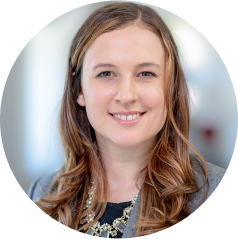Explore how much cash you should maintain in your portfolio. Learn how savings selection could affect your investment outcomes.
How to get the most from your cash

Not all savings investments are created equal. Cash investments are considered low risk, yet investors receive varying returns depending on what cash investments they select. In making a cash selection, investors should first consider how much they should allocate to cash, then identify how accessible they need their cash to be, and finally determine how to gain a competitive return on their cash.
What does it mean to keep money "in cash"?
First, what is cash? Cash can take many forms, including money held in your bank account or wallet. Additionally, there are cash investments (also known as cash equivalents), which are a type of short-term investment product that earns interest.
In that sense, we define "cash" as a readily available short-term financial instrument with high liquidity, minimal or negligible market risk, and a maturity period of less than 3 months.
How much money should you keep in cash?
While cash may not be ideal for long-term investment goals, it's always a good idea to maintain a reserve of cash that can serve a variety of purposes. If you don't have the right amount of cash on hand when you need it, you may be forced to sell out of the market at an inopportune time, which can hinder your investment outcome. Keep enough to cover your regular spending needs, including both your cost-of-living expenses and your discretionary shopping budget.
Don't forget to set aside cash for your emergency fund. You should hold enough cash to cover potential spending shocks—unplanned expenses like a surprise home repair or a broken appliance—that require immediate funds. Income shocks are another scenario to consider for emergency savings. However, given their rarity, you may weigh the potential missed investment opportunities before deciding to maintain this reserve entirely in cash.
Beyond these basic considerations, some investors, especially those with a low risk tolerance, might choose to keep extra cash for added security. However, it's important to be aware of the opportunity cost associated with holding more cash than necessary. If you decide to go this route, make sure to consider options that offer the highest possible return on your cash holdings to maximize your financial benefits.
Are you investing with us? Open an account now
Where to put your cash
After you decide how much you want to save in cash, then you can consider where to place your savings. When choosing where to allocate your cash, you can select from a range of cash options, including but not limited to a bank account, a money market fund, a CD, or even individual Treasury bills. It's most important to identify features you value in how to access your cash in deciding among these options.
As our clients consider where to place their savings, we encourage them to consider a few brutal facts on how savings selection can impact their investment outcomes:
Brutal fact #1
Most investors keep their savings in bank accounts—which typically earn lower returns than many other savings options.
Banking assets alone represent 10% of individual investor wealth, most of which resides in savings and checking accounts.1 Research has shown that the median bank account balance of U.S. individual investors is around $8,000 and the mean is more than $62,000,2 concentrating cash assets in places where they may not be generating meaningful returns.
Banking assets represent $5.6T or 10% of household wealth
Note: Banking assets represent $5.6 trillion or 10% of household wealth.
Source: Cerulli, U.S. Retail Investor Products and Platforms 2023, Exhibit 2.03.
Brutal fact #2
Traditional banks aren't keeping up. More return is possible beyond traditional checking and savings accounts.
At Vanguard, we offer a Cash Plus Account that features a bank sweep program with a competitive annual percentage yield (APY)3 and FDIC coverage.4 The Cash Plus Account also offers some features similar to a checking or savings account, such as account and routing numbers.5 You can keep your money in the bank sweep or diversify into 5 available money market funds (each with a $3,000 minimum investment).
Average rate on savings options
Sources: FDIC National Rates and Rate Caps and Vanguard, as of November 18, 2024.6
The Vanguard Cash Plus bank sweep program APY is 3.65% effective January 6, 2025.
For performance data current to the most recent month-end, visit our website at www.vanguard.com/performance.
Nicole Townsend, CFA, Senior Manager, Investment Product Strategy, Vanguard
We always encourage our clients to maintain an appropriate amount in emergency savings to support unforeseen expenses, and these differences in returns can result in meaningful variation in investment outcomes over the long term.
When it comes to cash in your portfolio, it's personal. You should consider how much you'd need for an emergency fund, any regular spending or upcoming expenses—and potentially a buffer, depending on your risk tolerance. By following our framework, you can determine a suitable amount of cash to hold that will meet your personal needs while keeping the rest of your investment portfolio in place, giving you the best chance for long-term success.
Let's make your cash count. Check out our savings strategies, including money market funds and brokered CDs.
Brutal fact #3
Not seeking a higher-yielding savings option can cost investors long-term wealth.
Historically, investors have seen a range of return outcomes on their cash options. As illustrated, Vanguard's Cash Plus Account not only provides valuable functionality, but it also can generate meaningful wealth creation on cash. For example, if an investor placed $10,000 in the Cash Plus Account's bank sweep versus the average savings account in May 2022, they'd have received nearly $1,000 more in interest on average. Bottom line - not seeking a higher-yielding savings option can cost investors wealth creation in the long run.
Historical investment return on a $10,000 investment
Sources: Vanguard and FDIC National Rates and Rate Caps.
Ranging from the Cash Plus Account's inception on May 24, 2022, to December 30, 2024, the original $10,000 investment within Checking ended at $10,016, Savings ended at $10,097, and the Cash Plus Account ended at $11,090—an increase of $1,090 in the Cash Plus Account.
This example is for illustrative purposes only and does not represent the return on any particular investment. It assumes a $10,000 investment, with no additional transactions made, and it factors in compounding. It is based on an estimate of total interest earned during the period shown using the Vanguard Cash Plus bank sweep program's actual daily APY (annual percentage yield will vary and may change at any time). For checking and savings accounts, the applicable monthly APY according to FDIC National Rates and Rate caps was used as the daily APY for each month presented. (During this time the average APY rate for Checking was 0.07%, Savings was 0.46%, and the Cash Plus Account was 4.15%.) There may be other material differences between these products that must be considered prior to investing, including the level of risk associated with each product type. Past performance is no guarantee of future results.
For more information about Vanguard funds, visit vanguard.com to obtain a prospectus or, if available, a summary prospectus. Investment objectives, risks, charges, expenses, and other important information are contained in the prospectus; read and consider it carefully before investing.

